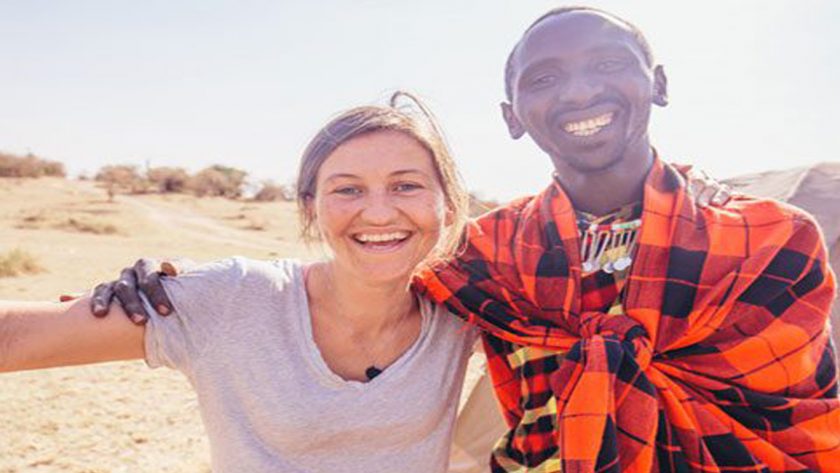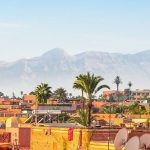Even before the car door is open, the boys are crowding close to make sure they’re the first to shake your hand. “Howzit?” the luckiest, or strongest, asks as he muscles the other boys aside. He offers his hand with a big smile. Unperturbed, the others stick close, waiting for their chance. Thinking this is a friendly welcome to Coffee Bay and the Wild Coast, you shake hands with him as he introduces himself as John. But to John, it’s all business, and he launches into his spiel without hesitation. “What do you need? Do you need anything? Some dagga? A guide to the Hole in the Wall? Do you want to see some sacred pools?” Suddenly, this welcoming committee isn’t so welcoming, and you realize that these kids are all trying to sell drugs and guided tours. And as soon as you tell one that you don’t need anything, another steps forward to take his place. “Hi, my name’s Fred. Remember, if you need anything, ask for Fred.”
In the South African tourist community, the Wild Coast is described as the real Africa, the last unspoiled corner of a country that is reaping the benefits of an unprecedented growth in tourism. It’s not the kitsch that’s found along the Garden Route or the European Africa of Cape Town and Johannesburg. That’s why thousands of travelers head to isolated places like Coffee Bay and Port St. John’s. Not only are these destinations exotic, they’re also some of the poorest regions of South Africa, and the impact of tourism on the communities has raised concerns. When David Malherbe bought the Coffee Shack Hostel in February 2000, the locals were constantly hanging around, harassing travelers. “It’s fairly unique in the Wild Coast,” Malherbe says of the problem. “There’s very few hostels not in a big city.” He says that while there haven’t been any “incidents,” he did have to take some action to get things under control.
“People were getting hassled, and there was a lot of begging,” he says. “What these kids don’t see is that these people have worked hard for two or three years to get here.” That’s why he’s put up signs asking travelers not to take kids on day trips when they’re supposed to be at school and that if they do want to hire a guide, they should check with staff to see who’s playing hooky and who’s not. The notices, Malherbe says, have helped, even if they haven’t solved all the region’s problems.
For years, the term ecotourism has been running through guidebooks, on the Internet, and across the globe. The idea is that travelers should make an effort to respect and preserve the environment of the countries they visit, despite what the locals say. After all, to them, getting enough money to buy food for the next day is more important than the long-term effects of environmentally disastrous tourism. Another term, however, is creeping into tourist vernacular: ethical tourism. The industry is the third largest in South Africa, with estimates putting the number of tourism-related jobs at 500,000. About 1.8 million foreigners entered the country last year alone, a quarter of which came from the UK. Those figures are rising as the industry experiences unprecedented annual growth of 12 percent, which is remarkable considering the September 11 terrorist attacks and the wars in Iraq and Afghanistan.
“We’re getting onto the map,” says Mike Fabricius, CEO of Western Cape Tourism. Fabricius says the country has been fortunate in the way South Africans have embraced tourism, but adds, “They could look at tourists as being people with a lot of money who don’t have a lot to lose.” He says it’s easy for locals to abandon education and legal employment in order to make profit from tourism one way or another. “That is one of the social impacts of tourism. It could become an issue for locals to generate money in an irresponsible way. Of course, the situation could go the other way as well, with tourists taking advantage of locals. If people are being treated as objects instead of hosts, that has negative results.” The onus, therefore, is on tour operators, the government, and the tourists themselves. In March 2002 the government released its “National Responsible Tourism Development Guidelines for South Africa.” The document describes tourism and the travel industry as “essentially the renting out for short-term lets, of other people’s environments.” It encourages relationships between tour operators and locals based on trust, empowerment, and cooperation. Too few of the benefits from tourism currently accrue to local communities. Ethical tourism is about enabling and encouraging historically disadvantaged communities to make the best of a lucrative industry.
According to Anna Spenceley, an associate at South Africa’s Institute of Natural Resources who has done extensive research on responsible tourism, the government has started implementing regulations that require tour operators to include communities in business plans and proposals. For example, the commercialization of nature parks has resulted in the contracting out of services. Companies that bid for a contract must include plans for providing locals with jobs.
And according to Fabricius, students of all ages are being introduced to the basics of tourism. “It’s a three-prong approach,” he says: entrepreneurship, environmental relationships, and a social component. The idea is to introduce children to the industry so they will understand the impact of their individual actions and behave accordingly.
Meanwhile, many tour operators have started focusing on ethical tourism programs and now offer packages that cater to the discerning traveler. Fabricius says this is due not only to increased social awareness but also to market demands – travelers are starting to take a closer look at the ramifications of their visits. “There’s definitely a growing awareness,” Fabricius says. “The will be the driver. If the market starts asking those questions, the industry will have to respond.” He adds that entities within the country are currently working with external tour operators, but it’s not enough.
Already, tour operators in the country are responding. Ufudu Fly Fishing and Amadiba Adventures offer packages that cater to those who want to do the right thing.
“It’s definitely our responsibility,” says the Coffee Shack’s Malherbe. “It’s our social responsibility.” To try to offset some of the negatives his operation might have on the local community, he has set up a scholarship for students who want to pursue further education. But Malherbe says it remains difficult to both act responsibly and still help the community.
“It’s such a fine line,” he says. “What’s wrong with giving a kid a sweet he doesn’t normally get?” But at the same time, he asks, does that encourage children to beg? The ultimate responsibility lies with the tourists themselves. “I don’t want to put up a big fence and make it like a hotel,” Malherbe says. Tourists should “meet the people, talk to them, and be friends.”
The end result, says Anna Spenceley, “depends on the relationship between the various parties, whether there is mutual respect.” Of course, that type of respect doesn’t come overnight, says Malherbe: “In rural areas like this, it’s going to take a long time.”



